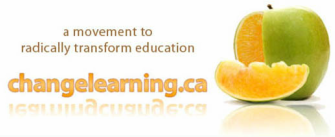|
This Policy Proposal, from the 21st Century Learning Initiative in the UK, is written to assist those in positions of influence to initiate powerful changes to current educational arrangements. The circumstantial evidence for such a transformation of learning is drawn from the best in research and practice from around the world. The paper shows that better informed, and more effective, models of learning could be organised through a redistribution of expenditures and responsibilities, at a total cost no greater than current levels of expenditure.
1 Comment
Play enhances every aspect of children’s development and learning, however, it is increasingly rare for children to have long, uninterrupted blocks of time to play indoors and outdoors, by themselves or with their friends. Although children learn to play naturally, we all have a role in ensuring that children have enough time and opportunity to play.
(Source: Canadian Council on Learning) Link: http://www.ccl-cca.ca/CCL/Reports/LessonsInLearning/LinL20061010LearninPlay.htm If young people are to be equipped effectively to meet the challenges of the 21st century it is surely prudent to seek out the very best understandings from current scientific research into the nature of how humans learn before considering further reform of the current system.
This article by John Abbott and Terence Ryan appeared in the Spring, 1999 issue of Education Canada. On the face of it, Sweden’s attitude to teaching nursery children is incredibly relaxed and informal. Could the absence of testing, inspection and excessive paperwork, combined with a strong emphasis on play and relaxation, be the very secret of their success?
Watch a fascinating video report on the British Teachers TV website: Early Years Education in Sweden This paper describes aspects of the current context of education policy in Canada, selected trends in the integration of information and communications technologies (ICT) for learning in the kindergarten to grade 12 education systems and offers observations about emerging visions of effective ICT integration. The ideas presented represent a synthesis of information reviewed in research reports, policy papers, selected seminars and surveys.
(Source: Canadian Education Association) Link: http://www.cea-ace.ca/res.cfm?subsection=rep The annual Survey of Canadian Attitudes toward Learning (SCAL) provides a unique opportunity to gauge the opinions, perceptions, and beliefs of Canadians about various aspects of learning in Canada. Now in its second year, the survey was designed by the Canadian Council on Learning (CCL) in consultation with Statistics Canada, which administered the survey on behalf of CCL.
Link: http://www.ccl-cca.ca/CCL/Reports/SCAL/ Over 40 billion dollars a year is spent in Canada getting our children from Kindergarten to Grade 12,[i], yet over 40% of our youth fail to meet expected performance levels for basic subjects[ii] and almost one quarter of our children fail to graduate with their peers.[iii]. Students are disengaging grade by grade[iv], a trend illustrated by their increasing dislike for school[v], declining academic achievement[vi] and rising rates of teenage depression[vii] and suicide[viii]. Contrary to Canada’s most fundamental democratic tenets, minority and low-income children are the hardest hit[ix]. Public opinion polls show confidence in the education system is at an all-time low[x], home schooling is growing exponentially and the number of children attending private schools has doubled in the past 25 years[xi]. An ever increasing number of factors point to a deeply flawed system that is failing our youth and our society. We see this failure reflected daily on our streets, in our malls and in the news. Learn more about signs of trouble.
Read more Rather than thinking of the brain as a computer, cognitive scientists now utilize a far more flexible, biological analogy, where the brain is seen as a unique, ever-changing organism that grows and reshapes itself in response to use. In this article, John Abbott and Terence Ryan discuss how emerging brain research that supports constructivist learning collides head-on with many of our institutional arrangements for learning.
The article first appeared in the November 1999 issue of Educational Leadership. |
Categories
All
Archives
August 2015
|

 RSS Feed
RSS Feed
